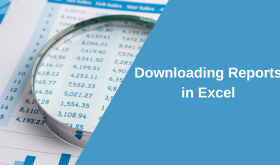![]()
People have been keeping track of time for millennia great civilisations like Egyptians, Greeks and Romans all had their own methods for timekeeping. Through the age’s the methods and technology we use to keep time has developed, we no longer have to look to the skies to check the time, hour glasses have become obsolete, instead it’s on our wrist and countless screens throughout our day to day lives. That development has been shared with time tracking at work. The first of this two-part blog will look at what time tracking software is, who it can benefit.
What is Time Tracking?
Tracking time at work is especially important and people have been using technology to track time at work for centuries. Way back in 1888 William Lagrand Bundy invented the earliest version of a time clock, to log when workers started and finished their work day. In today’s modern era however, Bundy’s early invention has gone through some changes in form. Enter Time Tracking Software, one of the most popular and effective ways of tracking time.
Time tracking software allows managers to effectively record worked hours for the purpose of billing, payroll, and operations. Time spent on assigned tasks is captured and this automatically updates payroll systems and client invoicing. Using time tracking software can also give insight into your day to day operations, providing information on what your staff are spending time on, where are costs being incurred and allows us to plan budgets.
Who uses Time Tracking Software?
Time tracking software is the modern equivalent of paper time sheets and a much more advanced version of a punch clock. Accountants, architects, construction, not for profit organisations, and IT firms are just a few of the industries where time tracking software is prevalent.
Let’s look at some cases where time tracking would benefit organisations:
- Companies with hourly and part-time workers- 66% of participants of 2017 Survey were hourly employees, who needed to keep track of their time. Keeping track of employees who are paid an hourly rate gives you direct insight into your costs and allows you to plan your budget.
- Companies that bill by the hour- Having a detailed record of the exact amount of work employees did on specific projects, means no work goes unbillable and you build a fair and transparent relationship with your client.
- Non-Profits and Charities– The ability to produce a report that details exactly where funding goes, not for profit organisations can ensure they keep a high level of accountability to donors and authorities.
- Freelancers– If you’re a freelancer the last thing you need is to be working for free, time tracking ensures every minute you spend working is accounted for to your client.
So now you know what time tracking is, and who is using it. Maybe you feel you fall into one of the categories that could benefit from the application of time tracking? Whatever the size of your organisation, from one-person enterprises to large firms 1Time offers solutions we feel can benefit your company. If you would like to see for yourself the benefits of 1Time you can avail of our 30day free trial by following the link.
Thanks for reading this blog. Next week we will look more in detail at the benefits of time tracking software, what to look for when you’re searching for time tracking software and how we feel we can help your business.









